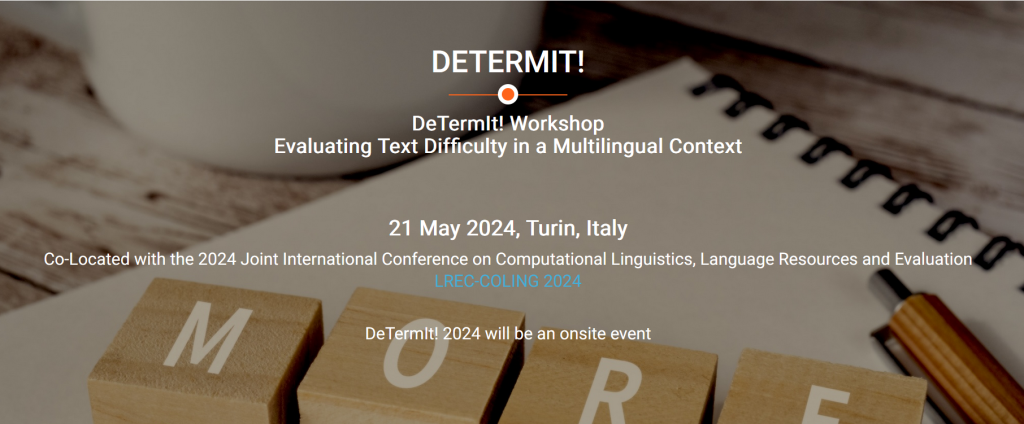Keynote speaker: Sara Carvalho
Sara Carvalho, collaborator of the LLT – Lexicology, Lexicography and Terminology research group of CLUNL, is the keynote speaker in the DeTermiT! Workshop – Evaluating Text Difficulty in a Multilingual Context, co-located with the LREC-COLING 2024 – Joint International Conference on Computacional Linguistics.
The conference of this researcher, entitled “Clear Communication, Better Healthcare: Leveraging Terminological Data for Automatic Text Simplification“, will take place online on 21st of May.
Abstract: Effective communication lies at the heart of quality healthcare delivery. Yet, the complexity of medical terminology often creates barriers in patient-healthcare provider interactions and may hamper patient engagement. Automatic Text Simplification (ATS) has emerged as a promising approach for improving the readability and understanding of medical texts. However, the success of ATS systems relies on consistent and structured terminological data. Drawing upon a double-dimensional approach to terminology work, this talk explores how the systematic representation, organisation, and sharing of terminological data in healthcare can contribute to the development of ATS tools that can better address the unique needs of healthcare communication.
While there are still many challenges to overcome in this regard – namely concerning ambiguity, polysemy, and terminological variation, along with conceptual multidimensionality and interoperability -, there is undeniable potential in leveraging terminological data to help advance ATS tools in this subject field (e.g. tailored outputs based on health literacy levels and background knowledge, enhancing the training of machine learning models, as well as the precision of simplification algorithms).
By underscoring the tangible benefits of incorporating terminological data and its underlying organisation principles into the development pipeline of ATS tools, this talk highlights the broader implications of clear communication in healthcare, emphasising its role in improving health literacy, fostering more effective patient-healthcare provider interactions, enhancing patient satisfaction and engagement, and ultimately driving better healthcare outcomes.
Further information: https://determit2024.dei.unipd.it/

 PT
PT